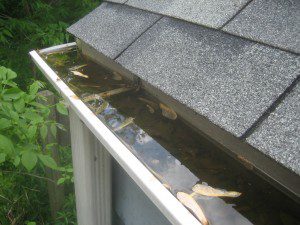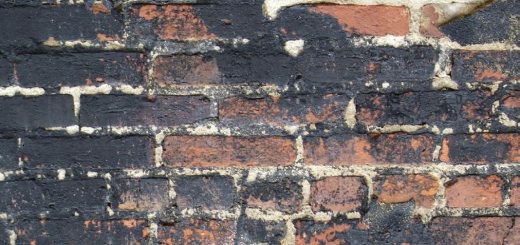Prevent Water Damage This Summer with These Steps
The summer is the wettest season in many areas of the U.S. There is often more rain in the summer, especially in areas affected by hurricane season and monsoon season, and the increase in rainfall leads to a higher risk of floodingFlooding is the overflow or accumulation of water in areas t... More. Certain areas also experience high levels of humidityHumidity is the amount of moisture or water vapor present in... More with the heat. These wet weather conditions make your home more vulnerable to water damage during the summer, whether it’s caused by leaks or seepageSeepage is the slow movement of water or other fluids throug... More from the excessive rainfall, natural floods, or humid conditions. It is very important to protect your home from water and flood damage during the summer to prevent serious property damage or moldMold is a type of fungus that grows in damp or humid conditi... More issues. The following tips will help you prevent water damage on your property through the summer season.
Clear Debris from your Gutters

Clogged gutters can leadLead is a heavy metal that can be toxic to humans, especiall... More to serious water damage.
Cleaning the gutters is one of the most effective ways to protect your home from water damage. All year, debris such as leaves and sticks accumulate in the gutters and downspouts which can prevent rain water from draining properly. If the gutters are clogged, the water can overflow and run down the sides of the home. This not only increases the risk of water damage or moldMold is a type of fungus that grows in damp or humid conditi... More growth on your siding, but also causes water to accumulate near the foundation of your home which can leadLead is a heavy metal that can be toxic to humans, especiall... More to basement floodingFlooding is the overflow or accumulation of water in areas t... More. Make sure you check and clean your gutters throughout the spring, summer, and fall, and ensure that the rainwater is draining properly through the downspouts and away from your home.
Check for and Fix Water Leaks
A water leak can occur almost anywhere in your home and if you don’t find and fix the problem, even a small leak can cause major damage. Leaks may occur in your roof, foundation, windows, pipes, plumbing fixtures, and appliances, and they are dangerous because the water will spread and get absorbed into the surrounding building materials. You must check these common areas regularly for leaks and take action when you find one. If you cannot fix a leak yourself, call a professional for assistance.
Test your Sump Pump
This is perhaps the most important step on this list because sump pumps prevent excess water from entering your home. Make sure you test your sump pumpA sump pump is a pump installed in a basement or crawlspace ... More at least once per year to make sure it is in working order. If you notice a problem with your sump pumpA sump pump is a pump installed in a basement or crawlspace ... More, call a professional who can help. You should consider installing a sump pumpA sump pump is a pump installed in a basement or crawlspace ... More in your home if you don’t have one already.
Watch your Water Bill
Sometimes leaks can occur in hidden areas of your home and homeowners don’t typically discover these leaks until the damage becomes apparent. One way to determine if you have a hidden leak is to pay attention to your water bills. If your water bill is higher than normal, there could be a leak hidden somewhere in your home.
Shut Off the Water for Long Vacations
Many families take long vacations in the summer and leave their homes empty for a week or two. If you go on a long vacation this summer, turn off the water in your home at the main shut off valve. This will prevent leaks that can leadLead is a heavy metal that can be toxic to humans, especiall... More to major damage so you won’t have to worry about returning home to a water damage issue.
The chance of experiencing water or flood damage on your property is higher during the summer, but following these tips will help you protect your home from water damage. It is important to remember that water damage gets much worse over time, so make sure you take preventative action and routinely check common areas for signs of damage. If you discover significant water damage in your home, you must immediately call a professional for water damage restoration services. These professionals provide effective water mitigation and flood cleanup services to remove excess water from your home and restore the damaged materials.












